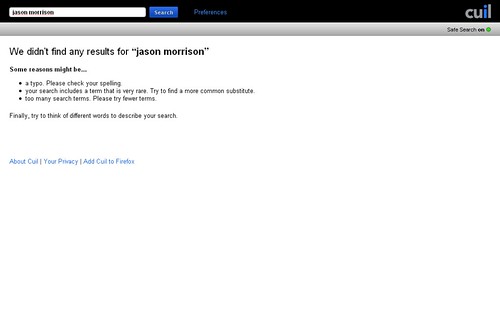A few years ago, before I was a Googler, I was a grad student doing research on information retrieval. I wanted to compare the results of Google and other search engines with folksonomies form social bookmarking sites. It sounds pretty simple – Google does lots of internal search quality studies, so it’s not too surprising that outside researchers would want to execute lots of queries and use the results in their data.
The way I did it was… not optimal, to say the least. I wrote a bunch of PHP code, spaced out participant sessions, etc. to make sure I could get results back. Google tries to make sure that spammers aren’t scraping search results to generate webspam, so any kind of scraping with cURL, Beautiful Soup, etc. can result in a big pile of failure.
The way I did it wasn’t the right way or the easy way, so when I got the job I made a mental note to ask around for the best way to get search results. Then I forgot all about it until an email exchange with Gary Warner of CyberCrime & Doing Time fame.
It turns out Google has a great University research program and API. You have to apply for registration and let us know who you are, what school you’re affiliated with, and what you plan to study. Assuming everyting checks out you’ll get access to a pretty nice API. There’s a some example Python code but you could just as easily use PHP, Java, or whatever to consume the XML responses.
And that research I was doing? I recently noticed that my paper has been cited 7 or 8 times, according to Google Scholar. I used to joke that I had written the least influential paper in the history of academic publishing, but I guess I can’t claim the title anymore. Scopus only shows 4 citations so I will remain humble anyway.
